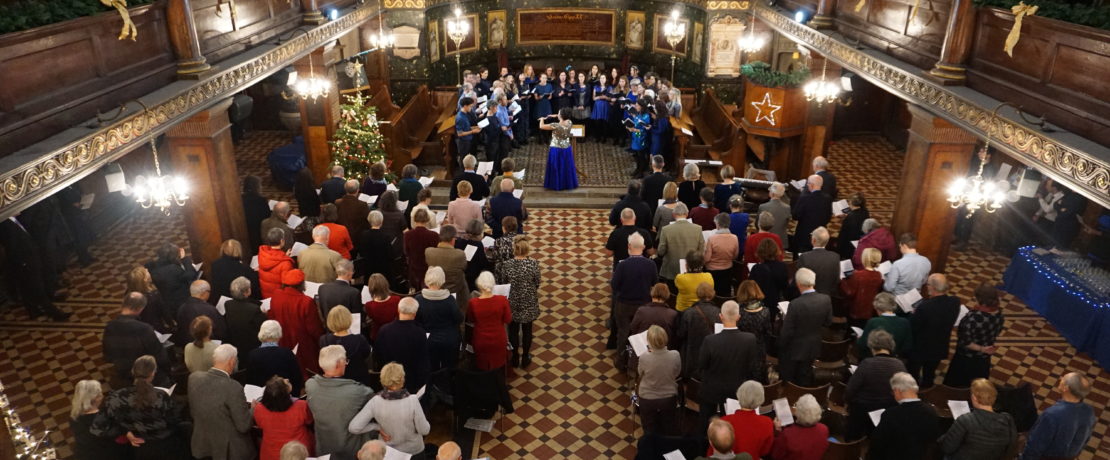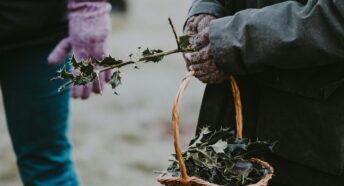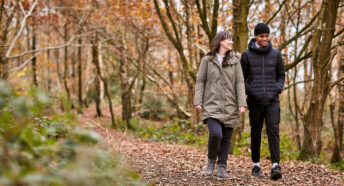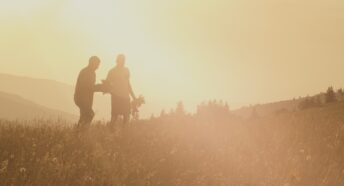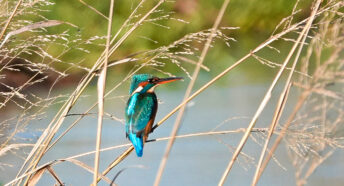Hark, the creaky descants sing … carolling for beginners
All over the country at this time of year, choir directors are tearing their hair out as they prepare for countless nine lessons and carols and the like, with tenors apparently an endangered species, fewer people being able to read music, and an army of older women finding it increasingly hard to hit the high notes of those unavoidable descants. David Powell interrupts his hair-tearing to muse on how today’s Christmas music reflects its history.
As I write this, I am in the middle of organising the carol service in the mediaeval parish church of Hamsey, near Lewes in East Sussex. One account tells that the old village of Hamsey suffered the plague and the surviving population set up a new village a couple of miles away and called it Offham (‘Off Hamsey’). A new church was built in the 19th century in the new settlement, but Hamsey church is still used for monthly evensong in the summer months, and this atmospheric candle-lit (no organ, electricity or running water) Christmas celebration.
A local brass band (reduced to five players because of our current plague) has kindly offered their services to accompany the congregational carols, and I will accompany my community choir on the accordion for their songs. The choir will sing ‘Gaudete’ and ‘I wonder as I wander’, and the Gloucestershire wassail outside the porch as the audience leaves. Luckily, the version of the wassail we are singing has 10 verses which will still barely be enough to cover the glacial speed of egress traditional in the Church of England.
Centuries of tradition
Many aspects of this popular event point to essential elements of rural carol performance, going back as far as the 15th century. Indeed, Christmas carols are generally either derived from folk sources (not necessarily having any reference to Christmas but often adapted with new words), or have been written especially by church composers. Felix Mendelssohn’s tune for ‘Hark the herald angels sing’ was borrowed from another work, and was combined with a text by Charles Wesley, originally ‘Hark how all the welkin rings’ for inclusion in Hymns Ancient and Modern in 1861, ‘welkin’ meaning sky or heavens.
The word ‘carol’ (like ‘ballad’) is supposed to be derived from a Greek or Latin word relating to dancing, but the actual origin of the word is not certain. The melody of ‘Ding dong! Merrily’, for example, is a lively French dance called a ‘bransle’. Many carols come from dance tunes, although we seem nowadays to have lost any appetite for dancing at Christmas time unless it’s to Mariah Carey or Slade.
Wassailing involves going round your village or neighbourhood singing carols, with the expectation of something to eat and drink for your troubles – hence the demand for ‘figgy pudding’ in ‘We wish you a merry Christmas’, one archetypal wassail song. The word wassail comes from the old English greeting ‘waes thu hael’ meaning ‘be thou healthy’, to which the response is ‘drinc hael’. The word later came to refer to whatever type of local punch was being drunk.
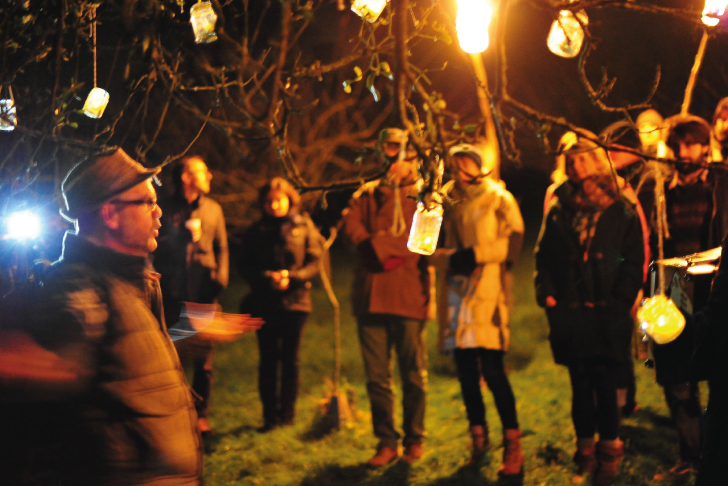
Connection with the outdoors
That association of the folky carols with wassailing, drinking and the outdoors meant that such music was not heard inside churches until probably the 20th century, when folk music started being taken seriously. This sudden interest was partly driven by the fear that all this rich material was in danger of being lost forever, a reaction reflected elsewhere in the world, notably in the USA and eastern Europe.
That century also saw collections of Christmas carols published and their inclusion in hymn books. Composer Vaughan Williams edited the New English Hymnal and set the words of a 19th century American teacher, Philip Brooks, to a folk tune about ploughing, the result being ‘O little town of Bethlehem’.
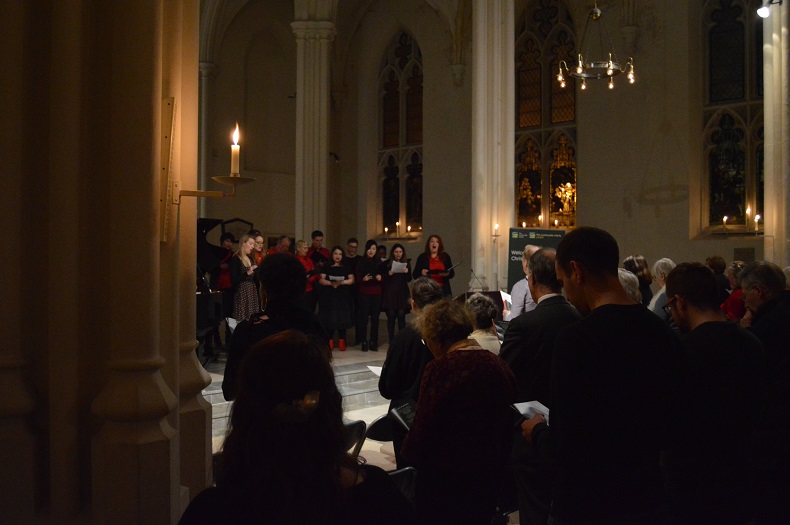
However, my accordion and the brass players hark back to earlier times. For centuries after its creation, any singing in Hamsey church would have beena cappella. Originally, the only sung part of a service would be the Psalm, usually just a single musical line chanted. Later, some churches might have had a variety of instruments to accompany any singing, but that would be entirely dependent on the availability of players and instruments, and the affordability of the latter.
In Thomas Hardy’s ‘Under the Greenwood Tree’ (1872) there is a rather charming dispute between four church musicians, string players, about the relative merits of different instruments for church music. This was before the great wave of organ building in churches a little later that century. The thunderous opening chords of ‘oh come all ye faithful’ are therefore a relatively recent novelty.
Open-air Christmas celebrations
The introduction of brass bands in the early 19th century brought about a revolution in outdoor music-making. The scale of their adoption as a community resource by collieries, mills and other factories (especially in northern England, in Cornwall and in Wales), as well as of course by the Salvation Army, meant that they became an essential part of open-air Christmas celebrations in countless towns and villages. When I lived in south London, each Christmas I was able to call on a number of professional brass-playing colleagues to come and play carols around the pubs and collect for charity one night in the year, and local people always used to look forward to the chance of having a good old sing.
The accuracy of the playing did however deteriorate towards the end of the evening after our collective thirst had been repeatedly quenched! Here is Hardy in the novel mentioned earlier, describing a phenomenon familiar to many church musicians: ‘The music on Christmas mornings was frequently below the standard of church-performances at other times.’
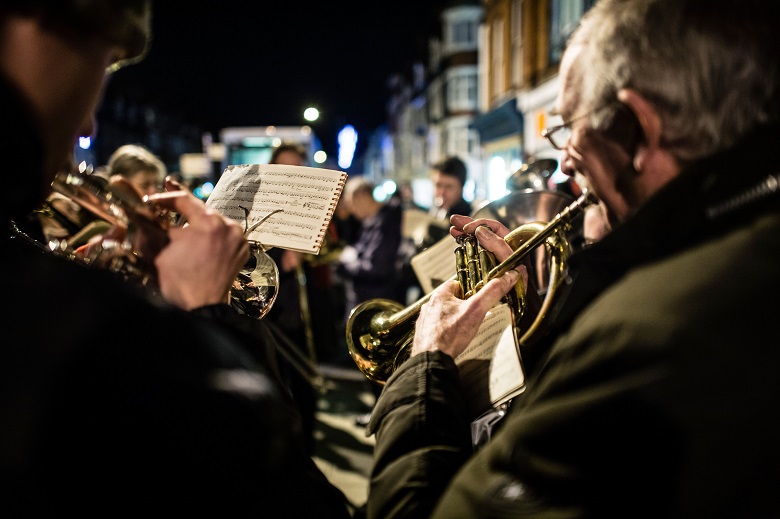
Yet from the most cynical and cheesy supermarket ad version to the ethereal sound of the King’s College, Cambridge choir on Christmas Eve, carols have a unique and specific power to evoke the feeling of comfort and joy many associate – or long to associate – with Christmas. Even to the most hardened atheist, this is about the myth of the cosy rural parish church decorated with holly and ivy and candles, the pub opposite, and the people inside, keeping out of the cold and cheering themselves up with song, companionship and laughter. It is of course an evolving tradition – but the great melodies and evocative texts from many forgotten or anonymous writers of the past will continue to haunt and move us for a very long time.
David Powell has recently retired to Sussex after a career as a freelance tuba player, composer and teacher in London. He performed with all of the London orchestras and the London Sinfonietta, as well as being a founder-member of Loose Tubes and playing regularly with John Dankworth and Mike Westbrook. David was director of music for 17 years in a south London parish church, and continues to direct choirs and play the church organ in his new location.
